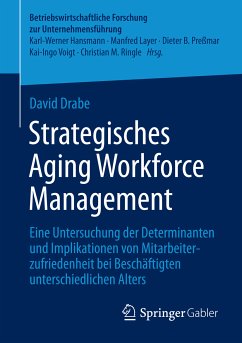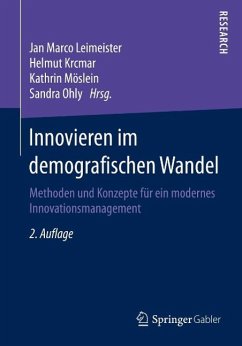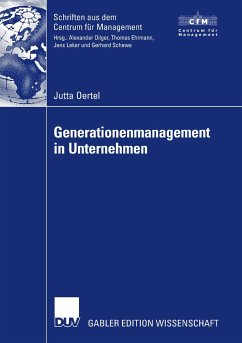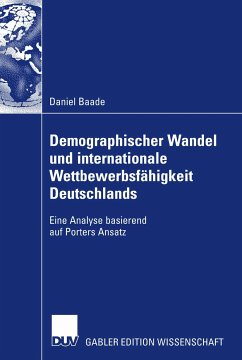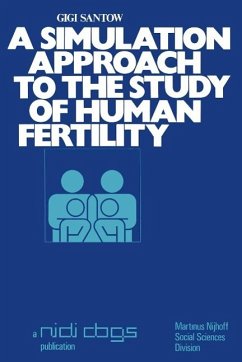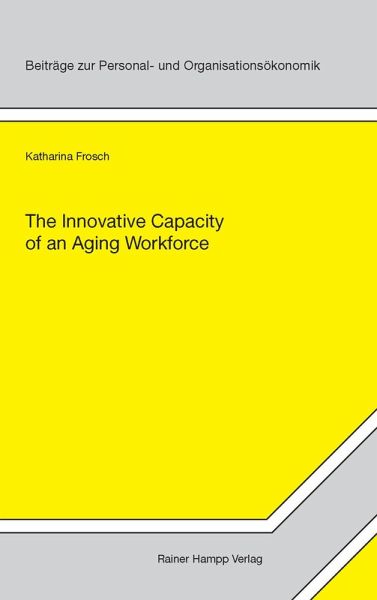
The Innovative Capacity of an Aging Workforce (eBook, PDF)
Sofort per Download lieferbar
Statt: 27,80 €**
24,99 €
inkl. MwSt. und vom Verlag festgesetzt.
**Preis der gedruckten Ausgabe (Broschiertes Buch)
Alle Infos zum eBook verschenken

PAYBACK Punkte
0 °P sammeln!
In times of sweeping demographic changes, policy makers and business executives in mature economies perceive workforce aging as one potential threat to the capacity for innovation and technological progress. However, evidence for age-dependency in innovative performance is still scarce. Pressing questions in this context are for example: - Does workforce age affect the innovative capacity of firms and regions, and if so, how and through which transmission channels do these effects occur? - What are the sources of possible age-dependency in innovative performance, in particular with respect to ...
In times of sweeping demographic changes, policy makers and business executives in mature economies perceive workforce aging as one potential threat to the capacity for innovation and technological progress. However, evidence for age-dependency in innovative performance is still scarce. Pressing questions in this context are for example: - Does workforce age affect the innovative capacity of firms and regions, and if so, how and through which transmission channels do these effects occur? - What are the sources of possible age-dependency in innovative performance, in particular with respect to innovation-relevant human capital? - What are the policy implications of the interplay between workforce age and the capacity to produce technological advances in times of future workforce aging? Starting from a comprehensive survey and critical discussion of existing studies about the interplay between workforce age and innovation, this book suggests a new conceptual framework to study the age-dependency of innovation. Based on this, three empirical studies investigate how the age composition of a workforce affects inventive performance in European regions, to what extent certain staffing patterns experienced by German firms boost innovative performance and how a region's entrepreneurial capacity relates to the age composition of its working-age population. Dr. Katharina Frosch (MBR) is an economist and social scientist based in Berlin, Germany. Since 2005, she has been engaged as an academic researcher and lecturer on innovation and entrepreneurship, demographic change and applied empirical issues in personnel economics.
Dieser Download kann aus rechtlichen Gründen nur mit Rechnungsadresse in A, B, BG, CY, CZ, D, DK, EW, E, FIN, F, GR, HR, H, IRL, I, LT, L, LR, M, NL, PL, P, R, S, SLO, SK ausgeliefert werden.




